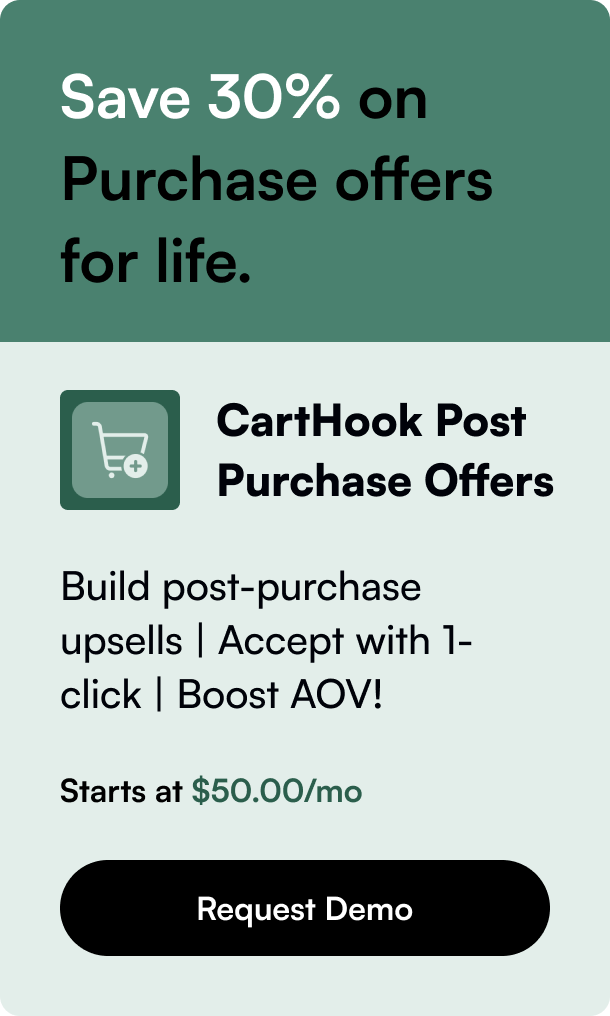Table of Contents
- Introduction
- What Are Shopify and Clover?
- Comparing Shopify vs Clover
- Which POS System Should You Choose?
- Conclusion
Introduction
Are you trying to make an informed decision between Shopify and Clover for your point-of-sale (POS) system? This can be a challenging task, as both POS systems offer a broad suite of features to streamline sales, manage inventory, and enhance the overall customer experience. However, understanding the specifics and how they map to your business needs is crucial. This article delves into an in-depth comparison of Shopify and Clover, helping you to understand which platform could be the optimal choice for your business's unique requirements.
What Are Shopify and Clover?
Shopify is a versatile ecommerce platform that not only allows you to create and customize your online store but also provides POS functionalities through Shopify POS. It's known for being one of the largest and most popular ecommerce solutions globally, supporting businesses in creating a comprehensive digital and physical retail experience.
Conversely, Clover offers a broad range of POS hardware and software solutions designed to cater to both service and retail-oriented businesses. Clover stands out with its distinctive hardware and the provision for using third-party apps within its system.
Comparing Shopify vs Clover
Pricing Schemes
When it comes to cost, businesses often seek a solution that offers flexibility and aligns with their budget without compromising on features.
- Shopify: Presents various plans with transparent monthly subscription fees. Users benefit from extensive ecommerce tools, bundled POS system, and no additional charges for the integration of apps from the Shopify store.
- Clover: Offers sleek hardware with either upfront purchases or leasing options. It has various service plans which could be beneficial for businesses looking for hardware-focused solutions.
Essential Features
Shopify:- Unified management for in-store and online sales.
- An extensive ecosystem with social media integrations.
- Ability to handle multiple locations and cards.
- Strong customer support network.
- POS solutions tailored to quick and full-service restaurants and retail.
- Integration with numerous third-party payment gateways.
- Simple interfaces, aiding quick adaptability.
- Customizable solutions with an array of apps on the Clover market.
Ecommerce Capabilities
-
Shopify: A powerhouse in ecommerce, facilitating businesses to reach a wider market through online stores and seamlessly integrating these sales with the physical store's POS system.
-
Clover: Though with robust in-store POS functionalities, relies on integration with third-party platforms for ecommerce capabilities.
POS Hardware Solutions
-
Shopify: A vast range of compatible third-party hardware with solutions for different business scales.
-
Clover: Distinct hardware options that stand out especially for physical store uses, be it in the service industry or retail sectors.
CRM and Data Analytics
-
Shopify: Strong features for customer retention and personalized reports which allow for targeted marketing campaigns and business insights.
-
Clover: Ambitious analytics for performance tracking, yet may require additional third-party apps for more advanced CRM functionalities.
Usability and Customer Experience
-
Shopify: Offers an advantage with its widespread knowledge base, aiding easy onboardings such as stock management and staff training.
-
Clover: Intuitive dashboards that simplify operations, especially for small-scale businesses and those new to POS systems.
Scaling and Integration
-
Shopify: Favours scalability with a slew of apps and features for expansion.
-
Clover: Can scale effectively within the realms of physical retail. Its app ecosystem can support essential growth.
Which POS System Should You Choose?
Selecting between Shopify and Clover truly depends on the nature and demands of your business:
- If your business prioritizes online sales or is planning to expand ecommerce capabilities, Shopify would likely be your preferred choice.
- For businesses intensely focused on in-store transactions particularly in the food industry, Clover may better address specific operational needs.
In the unfolding narrative of your business, the right POS system can act as a protagonist contributing majorly to your success story. As you consider your customer's journey, transaction processes and the holistic growth of your venture, ponder upon what tools, features and support you require.
Keep in mind scalability, network security, and the blend of online versus offline sales metrics important to you. Both Shopify and Clover bring formidable strengths to the table; it’s about finding which arrangement complements your business's unique script.
Transitioning to a new POS system or choosing the right one as a new business can make a notable difference in your operational flow. Adept businesses flourish not merely by the products or services they offer but by optimizing the management and sales processes that bolster the customer experience.
Conclusion
Shopify and Clover each portray distinct approaches to POS solutions. Engaging with either of these services can propel ecommerce and retail sales substantially. However, the key takeaway is to understand the intricacies of each platform and audit them against your business blueprint. With proper selection and implementation, the chosen POS system could help unlock your business’s full potential.
As advancements in technology march forward, ensure you align with solutions that offer agility and enhancement for both today's needs and tomorrow's possibilities. Moving forward with clarity, you can make an informed choice between Shopify vs Clover that empowers your enterprise on the path to growth and success.








